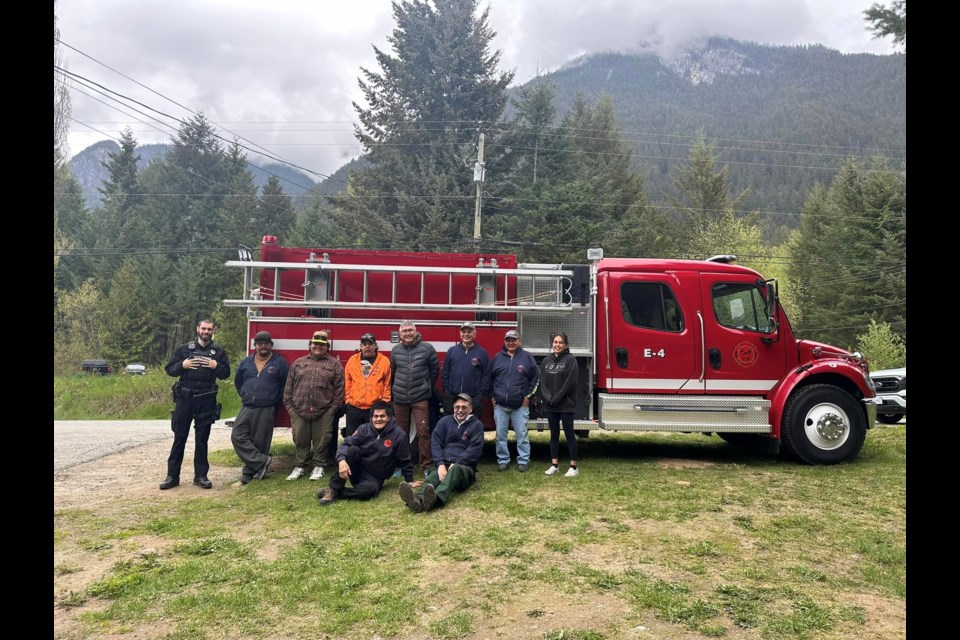The Lil’wat Nation Volunteer Fire Department received two new fire trucks this week, and volunteers have been busy getting to grips with the highly anticipated vehicles. The trucks were originally expected to arrive at the end of summer.
The first truck arrived on Thursday, April 25 followed closely by the second a day after. Meanwhile, neighbouring Pemberton recently adopted a loan authorization bylaw for its own new fire truck.
In a Facebook post, the Lil’wat Nation said the new vehicles will benefit the entire community.
“Our dedicated volunteers have been spending time learning how to use the new equipment,” they wrote. “Exciting times ahead for our firefighting team. They look forward to keeping the community safe.”
Lil’wat Nation’s FireSmart coordinator, Dillon Bikadi, was excited to take one of the trucks for a test ride. He said locals were eagerly awaiting the arrival of the vehicles. “There has been a great big response from the community,” he said. “The public seems to be engaging quite well.”
The fire department is made up entirely of volunteers from Lil’wat Nation. One big hurdle is the fact many firefighters have to hold down full-time jobs in other sectors. The need for the new trucks is evident after B.C. recorded the worst wildfire season on record in 2023.
Bikadi attended a wildlife resilience conference in Prince George last week in order to help prepare the community for wildfire season in every way he can. He explained the community is preparing for a forest fire they hope never happens. The Lil’wat FireSmart crew held its FireSmart Day on Saturday, April 27. Bikadi and volunteers offered to collect debris from people’s yards and brought it to a gravel pit by Eddie Lake for chipping. Locals were encouraged to prune and clean their gardens to make the area more fire safe. People were encouraged to send the organization photos of FireSmart activity for a chance of winning a prize.
Bikadi said the event was a huge success, and people now know the measures they need to take to keep their homes safe. “The loads that we were picking up from people who are doing their own treatments were quite large,” he said.




